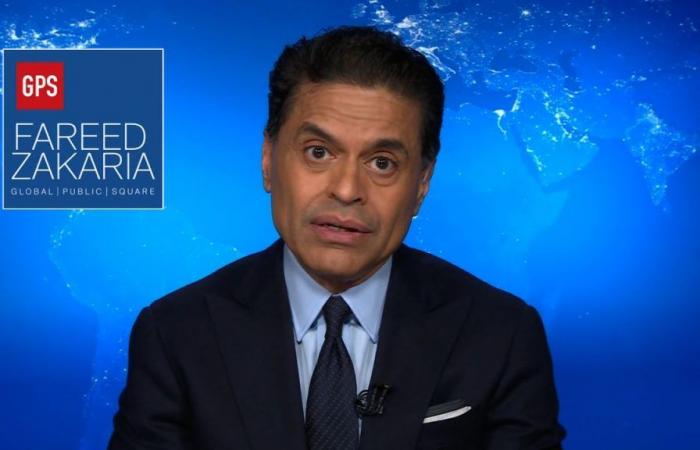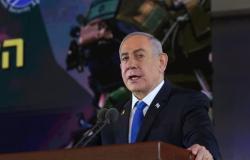In a world plagued by growing tensions, CNN journalist Fareed Zakaria is sounding the alarm. According to him, we are currently going through the most perilous period on the international scene since the fall of the Berlin Wall. From the Middle East in turmoil to Europe shaken by the war in Ukraine, via an Asia on the edge of the precipice, three major centers of crisis threaten to tip the global balance. These conflicts, far from being isolated, are dangerously intertwined, drawing the contours of a new unstable international order. Faced with this explosive situation, where powers that the author describes as “revisionists” are coordinating their efforts to challenge the status quo, the United States and its allies find themselves faced with a diplomatic and strategic challenge of unprecedented magnitude. Dive into the heart of an alarming geopolitical analysis that invites us to rethink the paradigms of global security.
Fareed Zakaria, American columnist, author and political commentator, one of the most influential voices in the field of foreign policy and international relations in the United States, launches the paving stone a few weeks before the American elections: “We live the most dangerous moment since the end of the Cold War.
Growing instability across the world
Zakaria identifies three major arenas where the established international order is currently being challenged: the Middle East, Europe and Asia. Each of these regions presents a unique but interconnected threat, which collectively underscores the precariousness of the current moment.
1. The Middle East – A fragile balance
The Middle East, long a hotbed of geopolitical tensions, is today experiencing an intensification of its instability, exacerbated by the October 7 attack perpetrated by Hamas. Zakaria explains that this region is the scene of a struggle between Iran and American allies, notably Israel and some Gulf states. What makes this situation particularly dangerous is Iran’s use of asymmetric means, supporting militant groups such as Hezbollah, Hamas and other militias in Iraq and Syria. These alliances keep the region in a constant state of tension, disrupting trade and increasing the risk of widespread conflict. The economic fallout is already visible, with diverted shipping routes and increasing pressure on oil prices in the event of additional attacks on Saudi infrastructure.
2. Europe – Russia’s attempt to redefine borders
The second major theater of instability is Europe, where Russia’s invasion of Ukraine poses the greatest threat to the Western-led security system since World War II. The American columnist believes that Putin’s aggression, although brutal and explicit, is part of a broader strategy aimed at challenge the US-dominated world orderwith the possibility of recovering territories not only in Ukraine, but also in Georgia, Moldova and perhaps even in the Baltic states that are members of NATO. The very foundations of European security, established after the Second World War and consolidated after the fall of the Soviet Union, are today weakened. A Russian victory would encourage other powers that the author describes as “revisionists” to follow suit, thereby weakening the stability that Europe has enjoyed for decades.
3. Asia – A growing but underestimated threat
In Asia, Fareed Zakaria highlights a growing threat often ignored: nuclear escalation on the Korean peninsula and assertiveness growth of China. North Korea, under the leadership of Kim Jong Un, has adopted a more hawkish posture since the failure of the summit with Donald Trump. Kim’s recent statements, including abandoning reunification with South Korea, point to an increased possibility of renewed conflict in the region. Meanwhile, China’s actions, particularly around Taiwan and in the South China Sea, demonstrate its desire to rival or even replace the United States as the dominant power in the region.
What about Israel and Netanyahu?
Netanyahu persists in his stubborn refusal of any ceasefire, despite repeated calls from the Biden administration, the UN and the international community, thus fueling the embers of an already explosive crisis in the Middle East and in the world. The deadly offensives in Gaza, which have caused thousands of civilian casualties, and the attack on peacekeepers in Lebanon are only further fueling tensions. However, Fareed Zakaria chooses to silence this Israeli responsibility, focusing his analysis on the “revisionist powers”. Certainly, Iran represents a threat to the stability of our region and primarily that of the Sunni nations, but by obscuring the controversial choices of Israel and its extremist government, the figurehead of CNN ignores a central lever of the current chaos.






